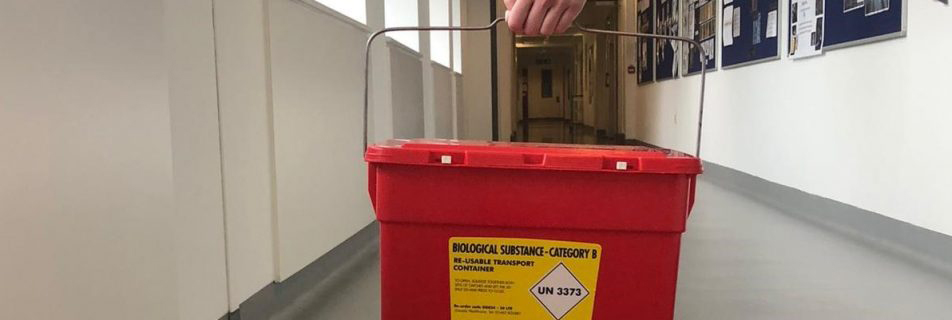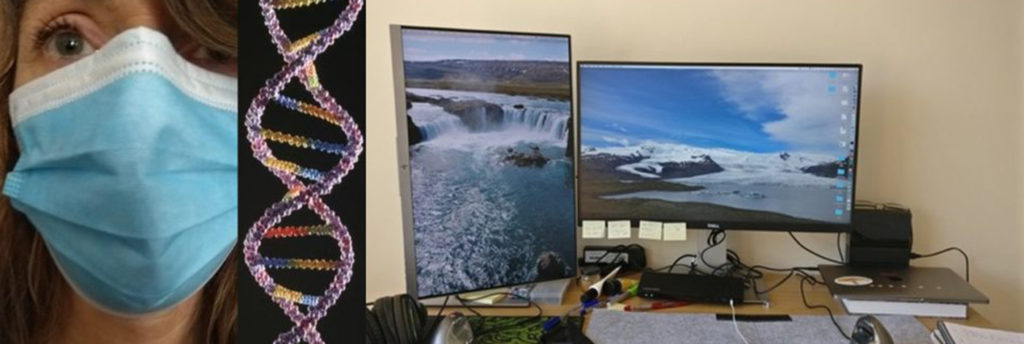Sanger scientists win £20 million ‘Grand Challenge’ funding from Cancer Research UK
Professor Sir Mike Stratton will lead an international team to help transform our understanding of what causes cancer
Wellcome Sanger Institute researchers have landed one of the biggest funding grants ever awarded by Cancer Research UK. The charity is set to invest £20 million over the next five years in a ground-breaking research project led by Professor Sir Mike Stratton.
The funding will come from the first Cancer Research UK Grand Challenge awards – set up to help scientists answer some of the hardest unanswered questions in cancer research, and to revolutionise the prevention, diagnosis and treatment of cancer.
In total, four grants were available and the team based at the Wellcome Sanger Institute beat stiff international competition to secure one of them.
Professor Stratton will lead a team of scientists from the UK, France and the US, together with collaborators from the International Agency for Research on Cancer, aiming to build a deeper understanding of what causes cancer.
It’s already known that things in our environment, and behaviours like smoking and drinking alcohol, cause cancer by damaging the DNA in our cells. This damage occurs in distinctive patterns known as mutational fingerprints that are unique to their cause. For example, cancers caused by UV exposure have a different mutational fingerprint to cancers caused by tobacco.
There are at least 50 cancer-associated mutational fingerprints but researchers only know what causes around half of them. Professor Stratton’s team hope to fill in the missing gaps and determine the as yet unknown causes of cancer.
They’ll do this by studying 5,000 pancreatic, kidney, oesophageal and bowel cancer samples, which come from five continents. This will generate as much cancer DNA sequence data as the whole world has produced so far. This research could dramatically improve our understanding of what causes cancer and lead to better information for people on how to reduce their risk of developing cancer.
“The main aim of our Grand Challenge is to understand the causes of cancer. Every cancer retains an archaeological trace, a record in its DNA, of what caused it. It’s that record that we want to explore to find out what caused the cancer.
“We’re going to sequence the DNA of thousands of cancer samples that have been collected from many different countries around the world, and study them to see what archaeological trace they contain. By doing this, we hope to figure out what caused those cancers.
“The thing that’s really exciting me is the challenge of making it all happen. And I’m looking forward to seeing the answers this work brings.”
Professor Sir Mike Stratton from the Wellcome Sanger Institute
The Wellcome Sanger Institute project was selected by an international panel of experts from a shortlist of nine exceptional, multi-disciplinary collaborations from universities, institutes and industry across the globe. Another Sanger scientist, Dr Serena Nik-Zainal is part of one of the other groups to secure funding. That group* will explore Ductal carcinoma in situ (DCIS), a condition that can sometimes develop into breast cancer.
“Cancer Research UK set up the Grand Challenge awards to bring a renewed focus and energy to the fight against cancer. We want to shine a light on the toughest questions that stand in the way of progress. We’re incredibly excited to be able to support these exceptional teams as they help us achieve our ambition.
“Cancer is a global problem, and these projects are part of the global solution. Together, we will redefine cancer – turning it from a disease that so many people die from, to one that many people can live with. We will reduce the number of people worldwide affected by cancer and achieve our goal of beating cancer sooner.”
Sir Harpal Kumar, Cancer Research UK’s chief executive
“When we began the Grand Challenge we sought scientific adventurers – people willing to come together in new ways, to think differently, and bring novel approaches to answer the big questions in cancer. These unique teams have done just that.
“Cancer is a complex, and often brutal disease. Cancer Research UK’s Grand Challenge is helping us change the way we to tackle it – bringing together different disciplines, ideas, and people on a global scale. We’ve got our sights set on the horizon of discovery, and I’m confident these Grand Challenge teams will lead to life-changing results.”
Dr Rick Klausner, chair of the Grand Challenge advisory panel and former director of the National Cancer Institute



